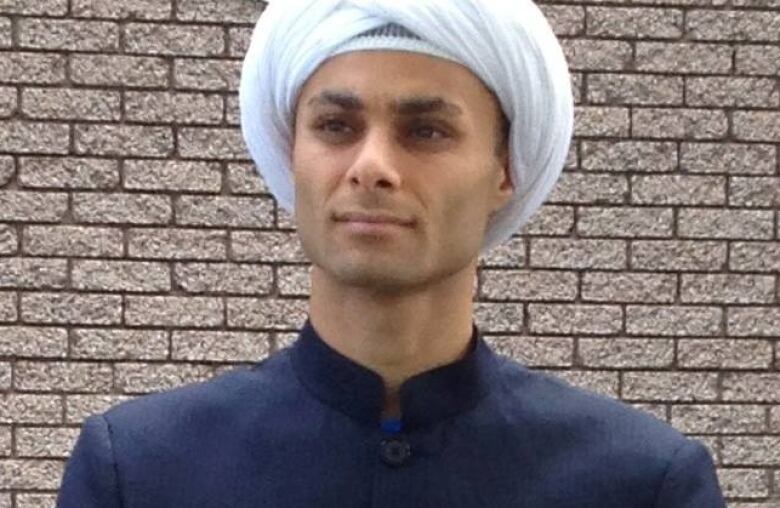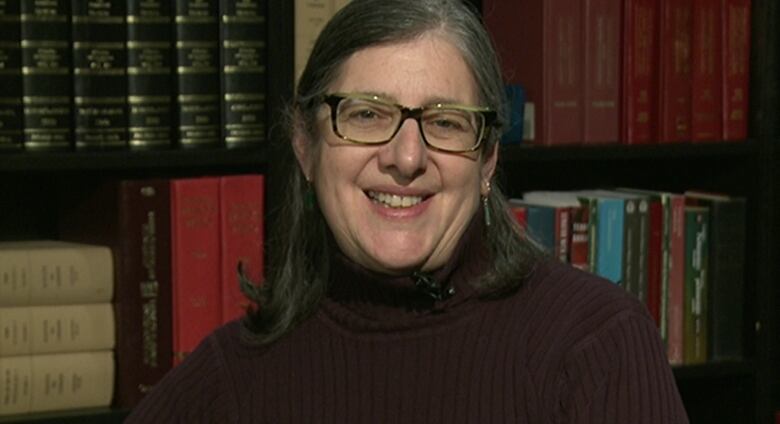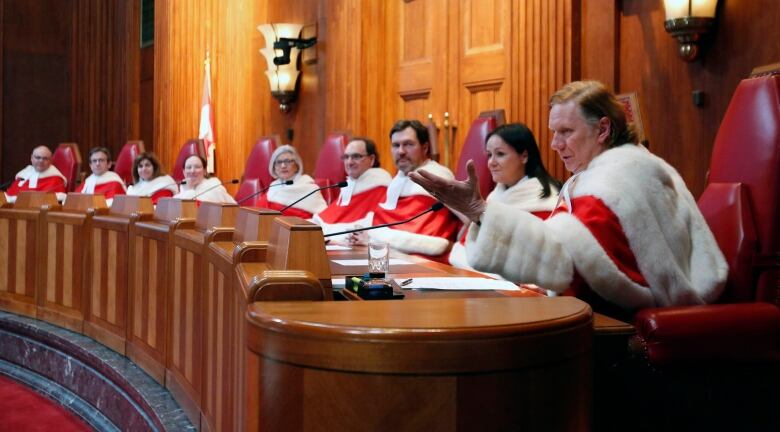Shariah and rules that govern religious practices in other faiths are not to be feared, spiritual leaders say
Motion M-103 sparked petitions, free speech concerns and fears it would lead to Shariah law in Canada

MPs on the Commons heritage committee continue theirstudy today on how to eliminatesystemic racism and religious discriminationin Canadawork that was requiredby amotion passed last spring.
MotionM-103,which calledon the House of Commons to condemn Islamophobia, sparked petitions, concerns about free speech and allegations itwas a step toward bringing Shariah law to Canada before it passed in March.
As MPs debated the motionin March, 57,731 people signed a petition aimed at MPs andsponsored by Conservative MP James Bezan, calling for an amendment to the Constitutionstatingthat "Sharia Law or separate Sharia family courts will never have a place in the Canadian Justice System."
- House of Commons passes anti-Islamophobia motion
- 5 things to know about the Commons motion on Islamophobia
- Heritage minister rejects 'cynical' Conservative anti-religious discrimination motion
It got to the point where Arif Virani, parliamentary secretary to the minister of Canadian Heritage, rose in the House of Commons to addresswhat he called fear-mongering.
"This motion is not about bringingShariahlaw to Canada. Such statements are pure conjecture and should be rejected out of hand because they lack any merit," Viranisaid.
But spiritual leaders say Shariah and rules that govern religious practices inotherfaithsare not to be feared by people outside their communities.
Religious laws in practice
Shariah, as a set of religious guidelines, is already in Canada.
Just as Roman Catholic canon law and JewishHalachaarehere, for those who choose to observe it.
"It's all around you," said Imam Mohamad Jebara,chief iman and resident scholar at the Cordova Spiritual Education Center in Ottawa.
"Every time a Muslim goes to pray, whenever I cook and take food to my neighbours, that's me exercising what Shariahteaches me," he said.

Rabbi Elizabeth Bolton said the impact of these practices are usually confined to their communities.
"The fact is there are all kinds of religious laws currently being practised in Canada that have no effect on folks who are not partof those religious traditions," said Boltonof Or Haneshamah, Ottawa'sReconstructionist Community.
Bolton told CBC News she's convinced objections over M-103 andthe connection to Shariahlawthat people are making is bigotry, plain and simple.
"I suppose because it is unknown and complex and just sounds like something fearful... as if what is practised within a different religious community could somehow in Canada be imposed on those who are not adherent," she said.
Religion is, after all, a voluntary association in Canada.
"In order for the Shariah-inspired rules to apply, you have to accept the basis and the teachings of Islam," Jebara said.
Shariah, he explained, is not a law. Rather, it is a methodology for life, regulating everything from personal hygiene and charity to pilgrimages and burials.
"We use it today to help people navigate the journey of life," Jebara said.
Islamic religious law, he added, is called Qanun the Arabic word for canon. It includes rules for Muslims, such as not eating pork or drinking alcohol.
For Jews,Halachaalso regulates what someone may eat, certain family matters and how to mark different occasions.
"How one observes the seasons, how one observes the week and the day. When prayer takes place, with whom you need to say certain prayers," Bolton explained.

Roman Catholic canon law sets out, among other things, the rights and obligations for adherents and clerics, the structure of the church and sacraments, as well as religious procedures.
"If you get a declaration of nullity of marriage, it's entirely ecclesiastical," said Michael-Andreas Nobel, canon law professor at Saint-Paul University in Ottawa.
"You must get a civil divorcebefore you can get an ecclesiastical divorce. We respect what the civil law requires. What we do is canon law and the civil authorities respect that as well."
Nobel pointed out canon law started in the first century.
"The church considered itself like a society that needed laws to regulate the lives of the people. But it still had to be distinguished from other legal concepts," he said.
Recourse to secular courts
Religious laws apply to a believer's spiritual life. They don'ttrump Canada's Criminal Code, civil law orother statutes.
Sometimes, secular courts are even called upon to judge whethera faith-based decision is fair.
On Nov. 2, the Supreme Court of Canada will hear from an Alberta man appealingadecision made by aJehovah's Witnesses' judicial committee.
Elders disfellowshipped or expelled Randy Wall when they decided the Calgary manwas not sufficiently repentant for two drunken incidents where he allegedly verbally abused his wife.
This decision by elders of the congregation required Wall's wife and children to shun him. Wall, a real estate agent,alleges the shunning caused him to lose a large number of Jehovah's Witnesses clients.

In 2007, Canada's top court ruled in favour of a woman who took action against her ex-husband for refusing to grant her a religious Jewish divorce, known as a get.
"The consequences to women deprived of a get and loyal to their faith are severe," Justice Rosalie Abella wrote.
"They may not remarry within their faith, even though civilly divorced. If they do remarry, children from a second civil marriage are considered illegitimate and restricted from practising their religion."
Open to interpretation and abuse
Religious rules though, have always beenopen to interpretation and, at times, vulnerable to abuse.
Jebara said that's what we're seeing today in some parts of the world, where Islamist "extremists have usurped Shariah and are doing crazy, awful stuff."
He compared it to how, in medieval times,some Catholics burned allegedheretics at the stake.
"Those were politically-based edicts," said Jebara.
So when people express concern about Shariah law coming to Canada, Jebara said he understands.
"It's like in the old days when you wereafraid of monsters under the bed. It's not because there are monsters under the bed. It's because it's dark."












_(720p).jpg)


 OFFICIAL HD MUSIC VIDEO.jpg)
.jpg)



























































































